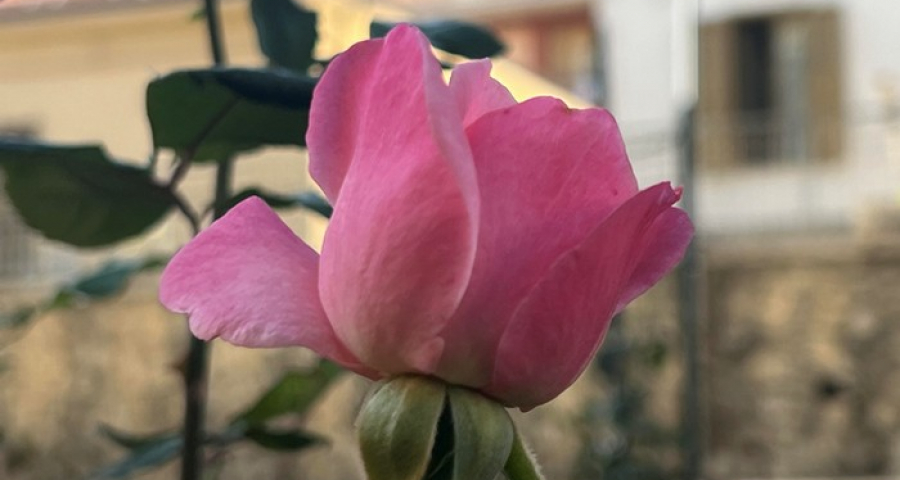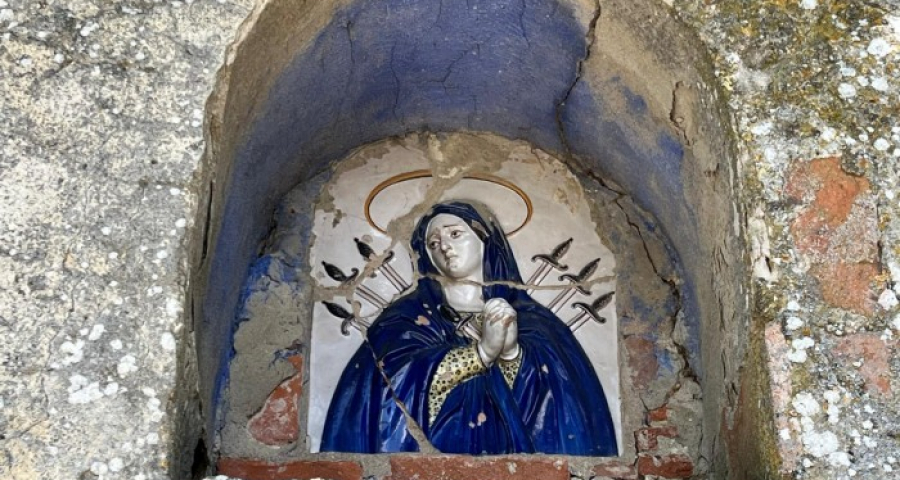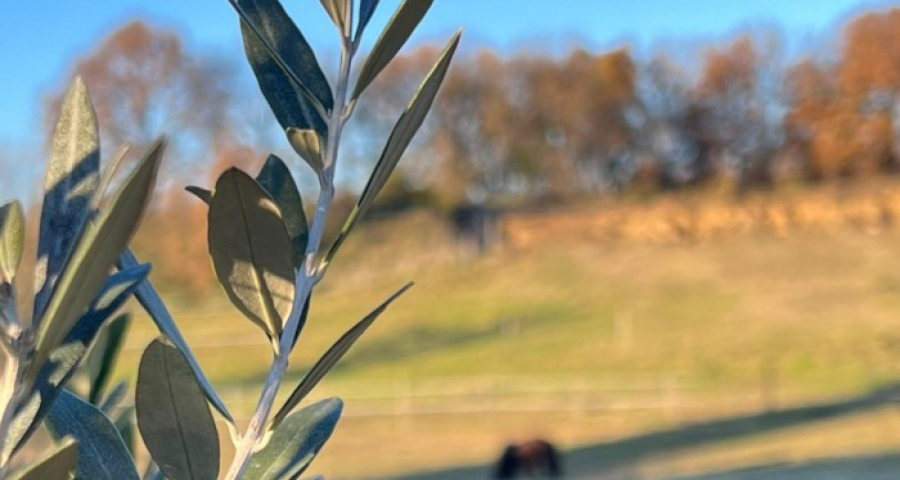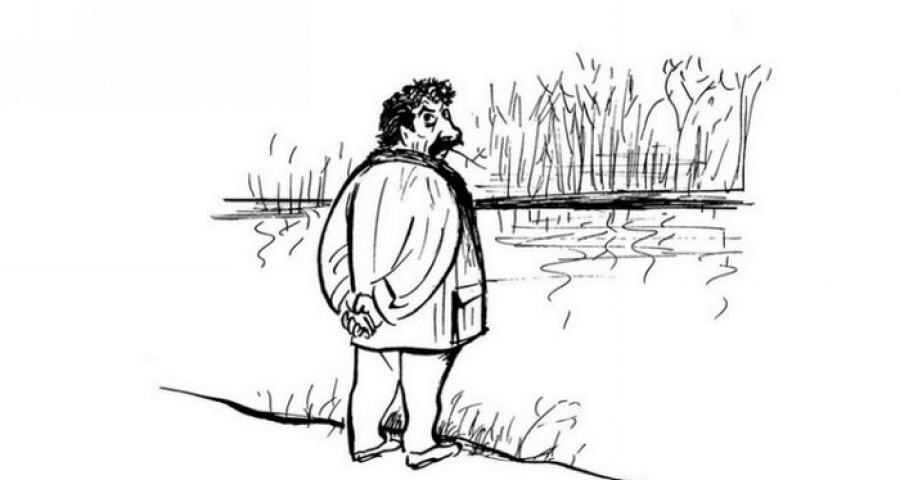Narrative Economy/5 - The figures of women in the great novel that unveiled the peasant South show secrets of emotional relationships and religious memory
by Luigino Bruni
published in Avvenire on 10/11/2024
“Give thanks I wish for the fact that I have a sister.”
Mariangela Gualtieri, Ringraziare desidero
Two episodes from Carlo Levi's Christ, the encounter with his sister and the child saved by Our Lady of Viggiano, introduce us to a world that still has much to tell us.
Christ Stopped at Eboli is, first of all, a book full of episodes written with beautiful prose, capable of giving us passages of a humanity as beautiful as it is now lost. In the first part of the novel, we find Luisa's visit to Carlo levi, her brother. She was a renowned child neuropsychiatrist, known for her pioneering studies on children's sex education. Luisa was four years older than Carlo (she was born in 1898), and her brother gives us a beautiful description of her in pages that are among the most intense in the novel. Upon her arrival, he sees her getting out of the car of Gagliano's 'taxi driver': "Her clear gestures, her simple dress, the frank tone of her voice, the open smile were those well known to me, which I had always known her: but after the long months of loneliness ... her arrival was that of an ambassador of another state in a foreign country" (p. 78). It is thanks to Luisa's account to her brother of her arrival by train in Matera that we have perhaps the best-known pages of Christ: "Of children there was an infinity... I saw children sitting on the doorways of houses, flies resting on their eyes, and those stood motionless... But most of them had big, swollen bellies, huge, and yellow faces, and suffered from malaria" (p. 82). A tremendous description that contrasts, and this time the contrast is all good, with today's stunning Matera, which has become one of Europe's most beautiful cities. Italy has also been capable of these civic metamorphoses, but they must never make us forget that Basilicata and the South are not just the bright one of Matera.
The account of Luisa's arrival in Gagliano is full of emotion, especially when Charles describes how the town welcomed and read about that sororal visit: "Until now I had been, for them, someone who had fallen from heaven: but I lacked something: I was alone. The discovery that I too had blood ties on this earth seemed to pleasantly fill, in their eyes, a gap. Seeing me with a sister moved one of their deepest feelings... When, towards evening, we strolled down the only street in the village, my sister and I, holding each other arm in arm, the peasants from the thresholds looked at us blissfully. The women would greet us, and cover us with blessings: - Blessed is the womb that bore you - ... - Blessed are the breasts that suckled you! - ... A bride is a beautiful thing: but a sister is so much more! - Friar and sister, core and core" (pp. 84-85). Words reminiscent of those of the women of Jerusalem as Jesus passed by (Lk. 11:27).
The Greek world knew more words for what we call 'love' today. Philadelphia and storgé were used to express that particular form of love that is typical of family ties. Paul, in his Letter to the Romans (12.10), uses the rare word philostorgos - composed by joining philos (friend) and storgé - to say, "Love one another with brotherly affection." Love between brothers and sisters is one of the strongest and deepest forms of love, different from marital love and even love for (and of) parents. It is made up of few words and much silent substance, of freedom, of quarrels that often recompose themselves the minute they arise. Love, then, between sisters is still different from that between brothers, but that between a brother and a sister is still different, and perhaps the most delicate and beautiful. It lives of grace, of sweetness, of very long hugs, of beauty, of much emotion. Because, unlike those between boys and between girls, the affection between a sister and a brother has a typical tenderness and complicity combined with delicacy, respect, confidence, modesty. Certain great intimate pains we males say more easily - and sometimes only - to a sister. It is not a chosen love as is that of friendship (philia); sisters (and brothers) happen to us, we find them inside the house before us or they come later, but this non-choice instead of reducing affection and freedom increases it, it is leaven of many other freedoms sought and conquered. The gift of having a sister changes and grows with us, the years unveil it, show all the treasures that remain hidden as children. Few sorrows are greater than those born of a sister gravely ill, or humiliated and offended, and the young death of a sister is perhaps, with that for the death of children, the greatest sorrow on earth. Today, in a time of fragile and short families and too many lonelinesses, sisterly love remains an anchor for our happiness. Fraternity is a beautiful word but it alone is not enough to express the emotion felt by the women in seeing Charles and Luisa arm in arm. It would take a different word, 'brother and sister' together, fraternity and sorority; a word that is not there, but one that we should never stop looking for and perhaps one day find.
Particularly sensitive, then, are also the pages about another woman, Margaret, who did chores for Charles: "An old woman, with a face full of goodness," who "was considered one of the most intelligent and educated women in the village"-the most beautiful pages of Christ are those that have women as protagonists. Marguerite had done "up to the fifth grade, and she remembered perfectly everything she had learned. In fact, when she came to my room, she would repeat to me the poems from those old school days of hers: the Expedition of Sapri, the Death of Ermengarda. She would repeat them standing in the middle of the room, standing upright, her arms stiffly hanging down her body, reciting them like chants" (p. 165). In that world, intelligence was something different from what it became later. It was also about goodness, because no person who was not good could be called intelligent. Something similar to what the Bible called wisdom. Schooling was also important for intelligence, although not essential, because there was little schooling and therefore as valuable as gold. In the peasant world, being able to go to school, especially for girls, was always a day of celebration, an oasis of beauty in a difficult everyday life of toil and pain. For the peasants of yesterday, the words they heard from the teacher in the multi-classrooms was the place of real news: history with its mysterious peoples, geography with its world capitals. Today they discovered the Assyrians, tomorrow the Babylonians, the day after tomorrow Madrid: all inhabitants of their own magical world. But above all they loved poetry. They didn't understand them, but they memorized them the way prayers were learned, because they were as beautiful as statues of the Madonna and saints, full of color and covered in gold. Those children knew that the school years were very few, two or maybe five, so they did not miss a word from the teacher. To get a sense of something of what the word was in the Bible, we would have to go back with our memory to the poor children's schools of yesterday, or to an African classroom of today: every word was a pledge of the promised land. In Margaret reciting the poems, I saw again those of my mother, who also only got as far as the fifth grade, who every August 10 recited to us (and still recites) from memory and with the same childlike pose, the poem 'San Lorenzo,' to which on special days were added 'Breus' and 'La cavallina Storna' - her beloved teacher Anna Filippini loved Pascoli very much.
One day Margaret told Charles, "amid tears," the story of her third child: "This child was the most beautiful of all... One winter day, Margaret had entrusted him to a godmother and neighbor, who had taken him with her to the country, while she went out to make wood. In the evening the neighbor came home alone, and in despair. She had left the child, who walked very little, for a few minutes, while she gathered, in the forest path, some branches: but, when she returned, the child was gone. She had gone around everywhere, of the child no trace... On the fourth day, in the morning, Margaret, who was wandering alone and disconsolate through the countryside, met at the turn of a path, a large and beautiful woman, with a black face. It was Our Lady of Viggiano. She said to her: - Margaret, do not cry. Your child is alive. He is down there in the woods, in a wolf pit. Go home, be accompanied, and you will find him - - Margaret ran, and, followed by the peasants and the carabinieri, she arrived at the place indicated by Our Lady. In the wolf-pit, in the middle of the snow, lay her child, quietly asleep, all pink and warm in the midst of that cold. The mother embraced him, woke him up. Everyone was crying, even the carabinieri. The child told that a woman with a black face had come, and that for four days she had kept him with her, and had given him milk, there in that pit, had kept him warm" (pp. 165-166). Then the child would die a few years later, falling from a ladder, but that milk he had received from the Virgin of Viggiano had made him special forever. We today to the 'big and beautiful, black-faced' women we meet along our paths, we close our ports, we reject them, we do not believe their life stories. But who knows how many children in our 'wolf pits' continue to be 'suckled' by 'Our Lady of Viggiano,' and do not die?!!!
In the world narrated by Levi, women were the primary stewards of the sacred, always intertwined with the magical. It was a shared stewardship among many people. In the Protestant world the popular sacred was fought over; in the institutional Catholic world it was concentrated in the priests, in a male monopoly. In the Catholic peasant world, on the other hand, it remained feminine, plural and popular, thus wild and untamed, and it survived, intertwined with magic but alive. In that mestizo field faith found fertile ground, natural humility nurtured the Christian humus. If Christianity, after this dark night, will still have a new season, it will be heralded by a popular, peasant, feminine, spurious dawn. Neither the Christianity of theologians nor the Christianity of the temple will be the garden where the stone can still roll.













